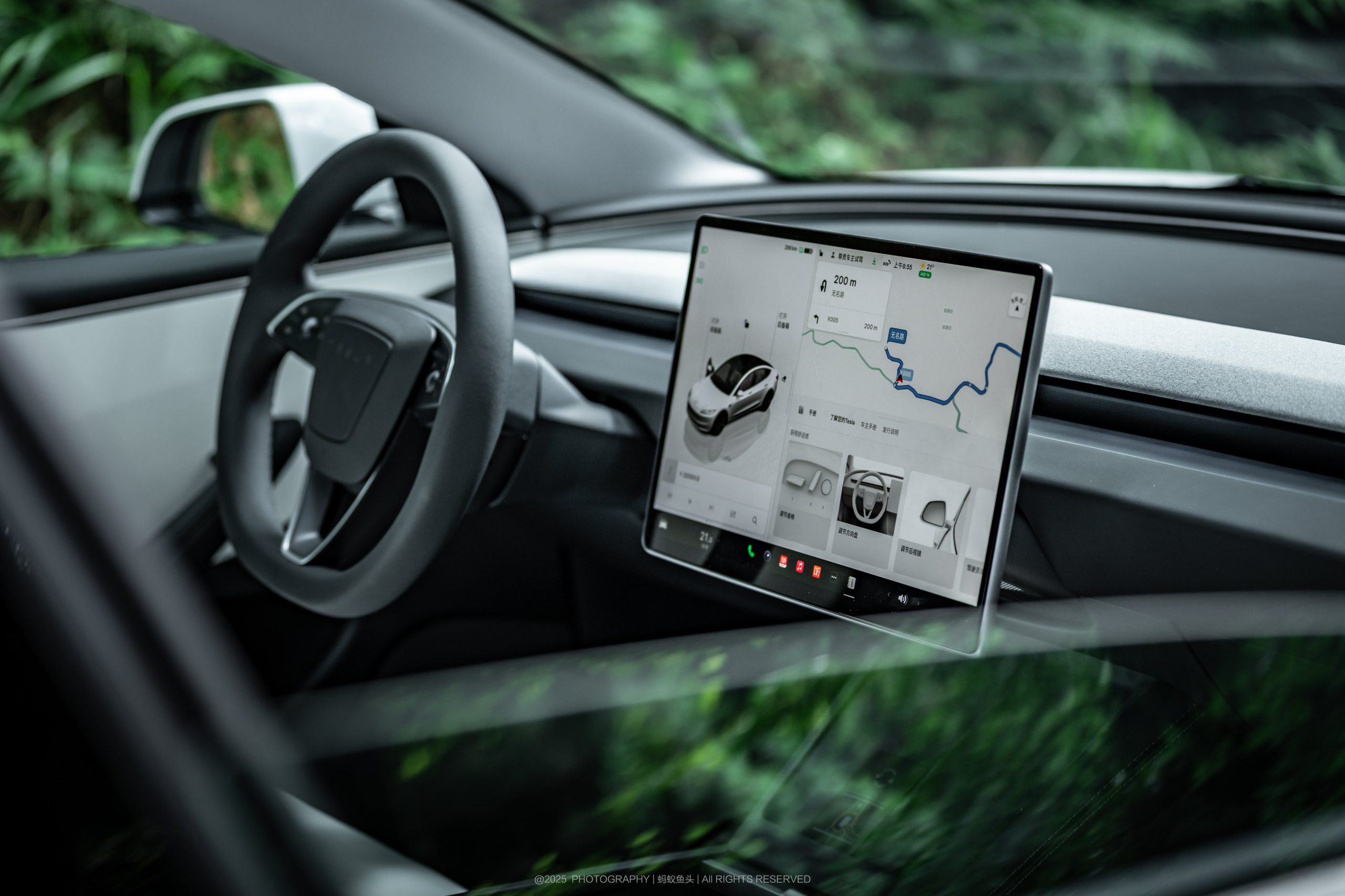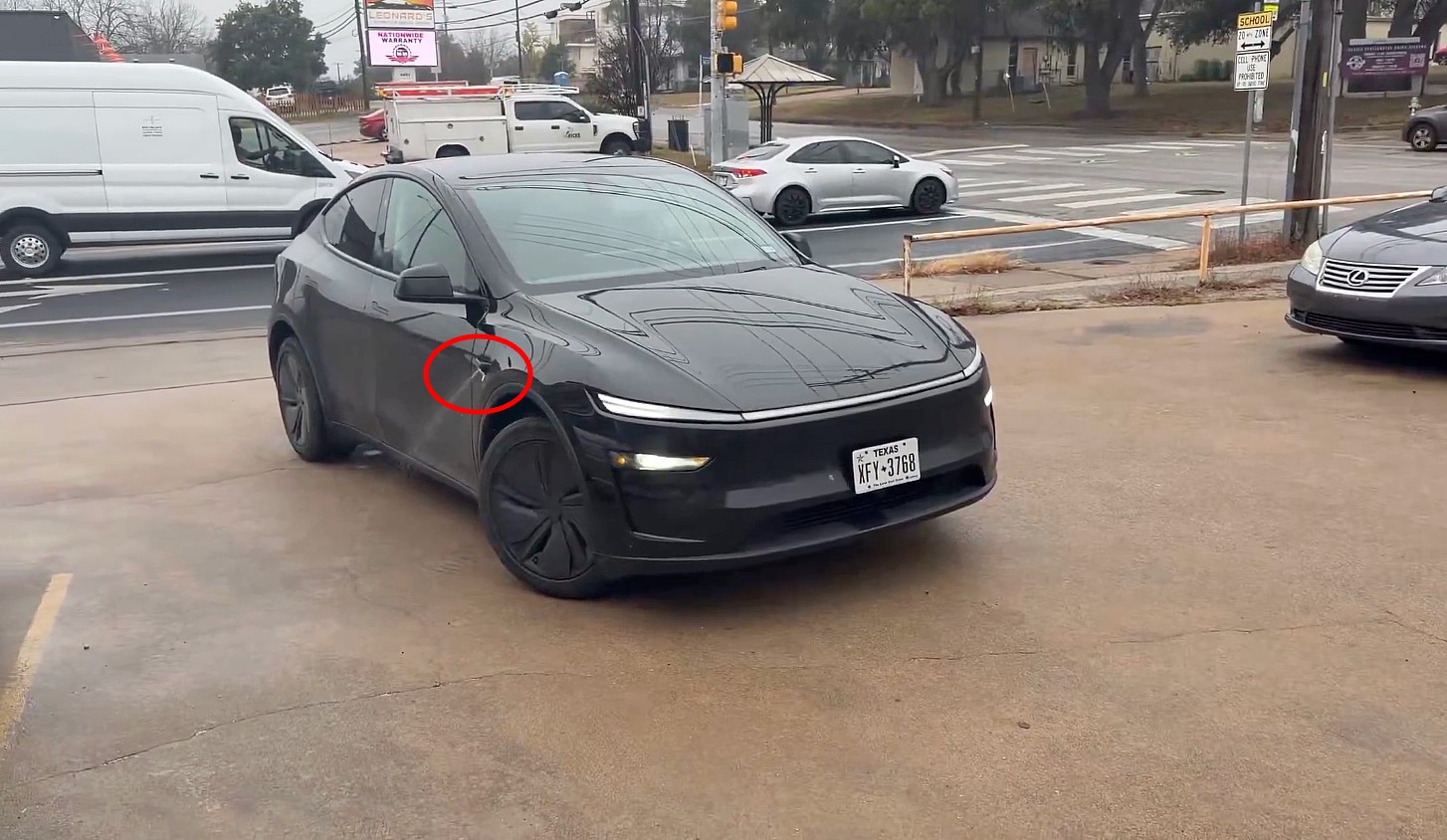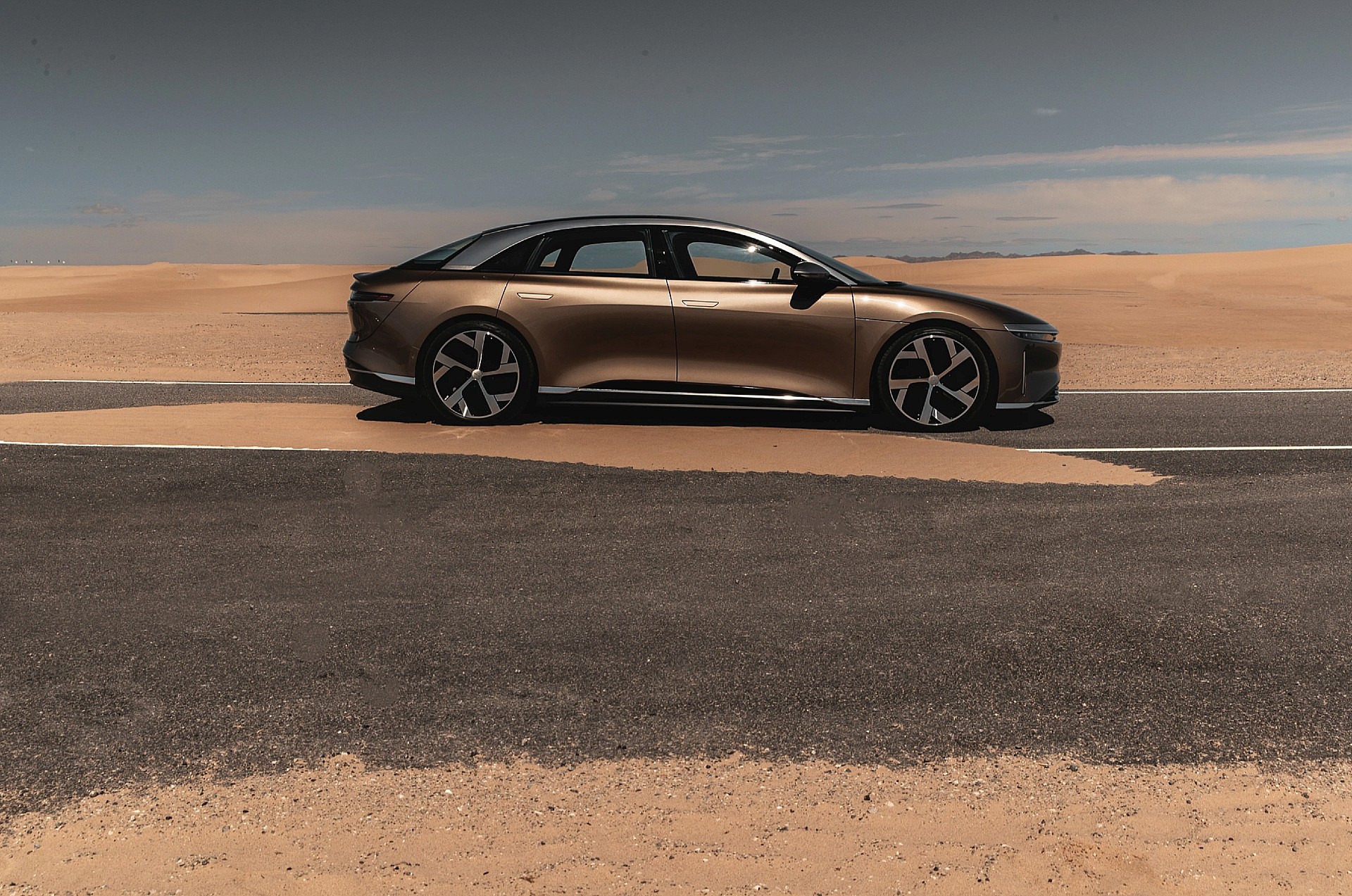Lucid Group announced today that it had reached an agreement with the Government of Saudi Arabia to purchase up to 100,000 electric vehicles from the automaker over ten years. The deal will start with an initial commitment of at least 50,000 vehicles with the option to purchase 50,000 additional cars over the same period.
“Delivering up to 100,000 Lucid electric vehicles in Saudi Arabia represents another pivotal moment in our acceleration of sustainable transportation worldwide,” Lucid Group CEO Peter Rawlinson said. “We are delighted to be supporting Saudi Arabia in achieving its sustainability goals and net-zero ambitions, as outlined by Saudi Vision 2030 and the Saudi Green Initiative, by bringing our advanced luxury EVs to Saudi Arabia.”
#LucidMotors announces deal with Government of Saudi Arabia for purchase of up to 100,000 vehicles over a ten-year period. #DreamAheadhttps://t.co/xPt6Goad3D pic.twitter.com/aDKgUxDfIo
— Lucid Motors (@LucidMotors) April 26, 2022
Lucid and Saudi Arabia have had ties since before the automaker started deliveries of its first all-electric car, the Lucid Air Dream Edition. In March 2021, Lucid and Saudi Arabia came to a deal that would see the automaker launch a new electric vehicle production plant in the country. The commitment was made after Lucid accepted a financing package worth over $1 billion from the Saudi Pacific Fund in 2018. In March, Lucid solidified plans for its first production facility outside of the United States with a 150,000 production capacity facility in Saudi Arabia.
Lucid Motors announces first international plant in Saudi Arabia
“Lucid aspires to be a catalyst for change wherever we go, so it makes perfect sense that we are bringing electric vehicles to one of the world’s biggest oil-producing nations,” Rawlinson said regarding the deal. “Establishing a global manufacturing footprint is a practical, natural step and enables us to grow our brand, scale our business, and address worldwide and untapped market demand on an entirely new level, while also taking action to address climate change through inspiring sustainable transportation.”
The deal between Lucid and Saudi Arabia includes a pledge from the country to buy Lucid Air vehicles, along with future models the automaker plans to offer in the coming years. Order quantity is expected to range from 1,000 to 2,000 vehicles annually, with increases to between 4,000 and 7,000 cars by 2025. The automaker said that delivery will commence no later than the second quarter of 2023, with vehicles being built at both the AMP-1 facility in Arizona and the future manufacturing facility in Saudi Arabia.
The partnership also surges Saudi Arabia and Lucid’s need for employees at its future plant. The deal will “provide thousands of highly skilled job opportunities and provide economic benefit to the Kingdom in line with Vision 2030.
Pricing of the vehicles will be determined based on the lower standard retail price for the applicable vehicle in Saudi Arabia and the standard retail price for the applicable vehicle in the United States, Lucid said. It will also include logistics and importation costs.
I’d love to hear from you! If you have any comments, concerns, or questions, please email me at joey@teslarati.com. You can also reach me on Twitter @KlenderJoey, or if you have news tips, you can email us at tips@teslarati.com.

Elon Musk
Tesla to increase Full Self-Driving subscription price: here’s when

Tesla will increase its Full Self-Driving subscription price, meaning it will eventually be more than the current $99 per month price tag it has right now.
Already stating that the ability to purchase the suite outright will be removed, Tesla CEO Elon Musk said earlier this week that the Full Self-Driving subscription price would increase when its capabilities improve:
“I should also mention that the $99/month for supervised FSD will rise as FSD’s capabilities improve. The massive value jump is when you can be on your phone or sleeping for the entire ride (unsupervised FSD).”
This was an expected change, especially as Tesla has been hinting for some time that it is approaching a feature-complete version of Full Self-Driving that will no longer require driver supervision. However, with the increase, some are concerned that they may be priced out.
$99 per month is already a tough ask for some. While Full Self-Driving is definitely worth it just due to the capabilities, not every driver is ready to add potentially 50 percent to their car payment each month to have it.
While Tesla has not revealed any target price for FSD, it does seem that it will go up to at least $150.
I should also mention that the $99/month for supervised FSD will rise as FSD’s capabilities improve.
The massive value jump is when you can be on your phone or sleeping for the entire ride (unsupervised FSD). https://t.co/YDKhXN3aaG
— Elon Musk (@elonmusk) January 23, 2026
Additionally, the ability to purchase the suite outright is also being eliminated on February 14, which gives owners another reason to be slightly concerned about whether they will be able to afford to continue paying for Full Self-Driving in any capacity.
Some owners have requested a tiered program, which would allow people to pay for the capabilities they want at a discounted price.
Unsupervised FSD would be the most expensive, and although the company started removing Autopilot from some vehicles, it seems a Supervised FSD suite would still attract people to pay between $49 and $99 per month, as it is very useful.
Tesla will likely release pricing for the Unsupervised suite when it is available, but price increases could still come to the Supervised version as things improve.
This is not the first time Musk has hinted that the price would change with capability improvements, either. He’s been saying it for some time. In 2020, he even said the value of FSD would “probably be somewhere in excess of $100,000.”
The FSD price will continue to rise as the software gets closer to full self-driving capability with regulatory approval. It that point, the value of FSD is probably somewhere in excess of $100,000.
— Elon Musk (@elonmusk) May 18, 2020
News
Tesla starts removing outright Full Self-Driving purchase option at time of order

Tesla has chosen to axe the ability to purchase Full Self-Driving outright from a select group of cars just days after CEO Elon Musk announced the company had plans to eliminate that option in February.
The company is making a clear-cut stand that it will fully transition away from the ability to purchase the Full Self-Driving suite outright, a move that has brought differing opinions throughout the Tesla community.
Earlier this week, the company also announced that it will no longer allow buyers to purchase Full Self-Driving outright when ordering a pre-owned vehicle from inventory. Instead, that will be available for $99 per month, the same price that it costs for everyone else.
The ability to buy the suite for $8,000 for a one-time fee at the time of order has been removed:
NEWS: Tesla no longer allows buyers to purchase FSD outright in the U.S. when ordering a pre-owned vehicle directly from inventory. Tesla now gives you the option to either subscribe for $99/month, or purchase FSD outright after taking delivery (available until February 14th). pic.twitter.com/1xZ0BVG4JB
— Sawyer Merritt (@SawyerMerritt) January 23, 2026
This is a major move because it is the first time Tesla is eliminating the ability to purchase FSD outright for one flat fee to any of its vehicles, at least at the time of purchase.
It is trying to phase out the outright purchase option as much as it can, preparing people for the subscription-based service it will exclusively offer starting on February 14.
In less than a month, it won’t be available on any vehicle, which has truly driven some serious conversation from Tesla owners throughout the community.
There’s a conflict, because many believe that they will now lose the ability to buy FSD and not pay for it monthly, which is an attractive offer. However, others believe, despite paying $8,000 for FSD, that they will have to pay more money on top of that cost to get the unsupervised suite.
Additionally, CEO Elon Musk said that the FSD suite’s subscription price would increase over time as capabilities increase, which is understandable, but is also quite a conflict for those who spent thousands to have what was once promised to them, and now they may have to pay even more money.
News
Tesla Robotaxi has a highly-requested hardware feature not available on typical Model Ys
These camera washers are crucial for keeping the operation going, as they are the sole way Teslas operate autonomously. The cameras act as eyes for the car to drive, recognize speed limit and traffic signs, and travel safely.

Tesla Robotaxi has a highly-requested hardware feature that is not available on typical Model Ys that people like you and me bring home after we buy them. The feature is something that many have been wanting for years, especially after the company adopted a vision-only approach to self-driving.
After Tesla launched driverless Robotaxi rides to the public earlier this week in Austin, people have been traveling to the Lone Star State in an effort to hopefully snag a ride from one of the few vehicles in the fleet that are now no longer required to have Safety Monitors present.
BREAKING: Tesla launches public Robotaxi rides in Austin with no Safety Monitor
Although only a few of those completely driverless rides are available, there have been some new things seen on these cars that are additions from regular Model Ys, including the presence of one new feature: camera washers.
With the Model Y, there has been a front camera washer, but the other exterior “eyes” have been void of any solution for this. For now, owners are required to clean them manually.
In Austin, Tesla is doing things differently. It is now utilizing camera washers on the side repeater and rear bumper cameras, which will keep the cameras clean and keep operation as smooth and as uninterrupted as possible:
🚨 Tesla looks to have installed Camera Washers on the side repeater cameras on Robotaxis in Austin
pic.twitter.com/xemRtDtlRR— TESLARATI (@Teslarati) January 23, 2026
Rear Camera Washer on Tesla Robotaxi pic.twitter.com/P9hgGStHmV
— TESLARATI (@Teslarati) January 24, 2026
These camera washers are crucial for keeping the operation going, as they are the sole way Teslas operate autonomously. The cameras act as eyes for the car to drive, recognize speed limit and traffic signs, and travel safely.
This is the first time we are seeing them, so it seems as if Safety Monitors might have been responsible for keeping the lenses clean and unobstructed previously.
However, as Tesla transitions to a fully autonomous self-driving suite and Robotaxi expands to more vehicles in the Robotaxi fleet, it needed to find a way to clean the cameras without any manual intervention, at least for a short period, until they can return for interior and exterior washing.











